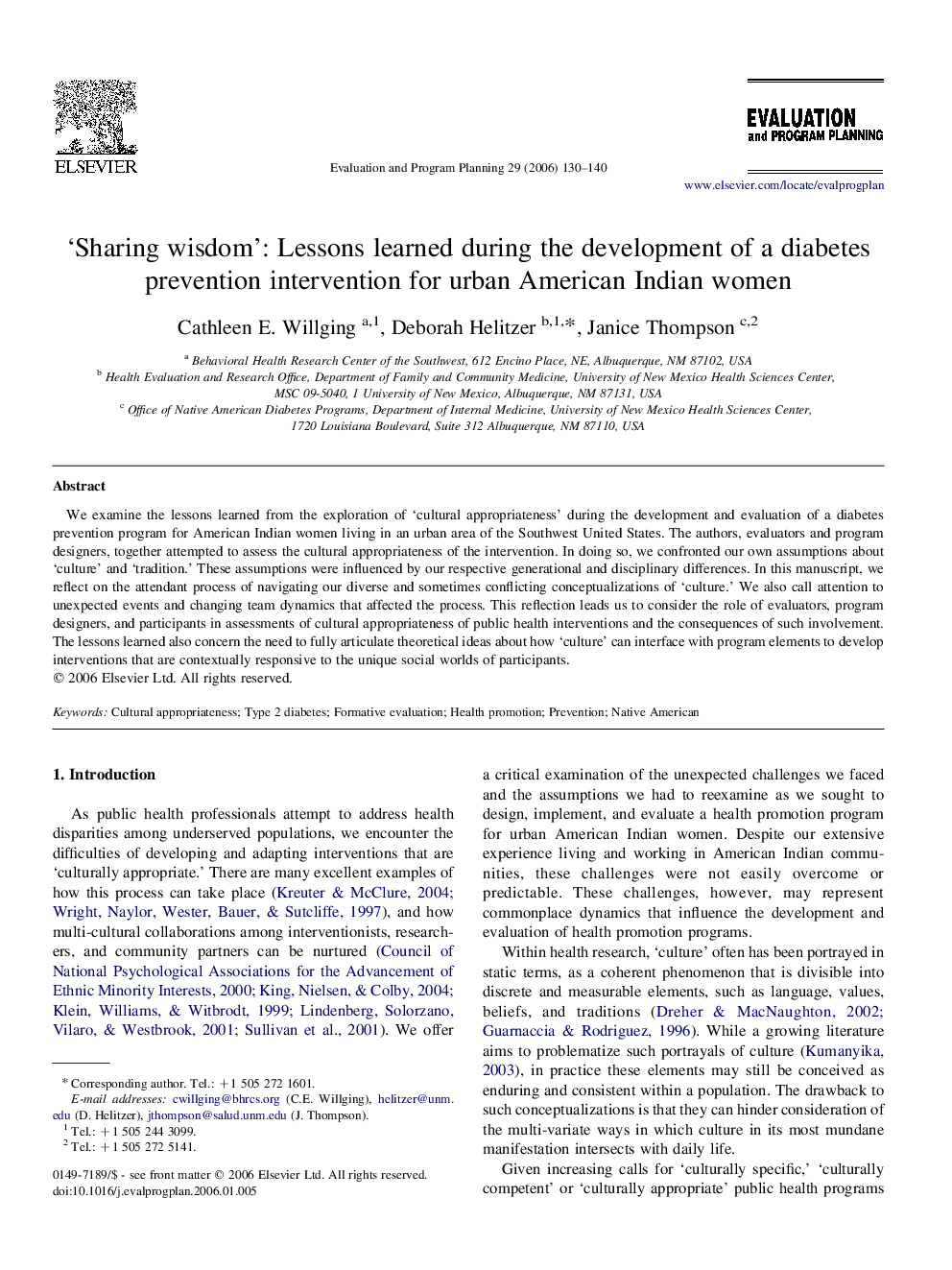| Article ID | Journal | Published Year | Pages | File Type |
|---|---|---|---|---|
| 322640 | Evaluation and Program Planning | 2006 | 11 Pages |
We examine the lessons learned from the exploration of ‘cultural appropriateness’ during the development and evaluation of a diabetes prevention program for American Indian women living in an urban area of the Southwest United States. The authors, evaluators and program designers, together attempted to assess the cultural appropriateness of the intervention. In doing so, we confronted our own assumptions about ‘culture’ and ‘tradition.’ These assumptions were influenced by our respective generational and disciplinary differences. In this manuscript, we reflect on the attendant process of navigating our diverse and sometimes conflicting conceptualizations of ‘culture.’ We also call attention to unexpected events and changing team dynamics that affected the process. This reflection leads us to consider the role of evaluators, program designers, and participants in assessments of cultural appropriateness of public health interventions and the consequences of such involvement. The lessons learned also concern the need to fully articulate theoretical ideas about how ‘culture’ can interface with program elements to develop interventions that are contextually responsive to the unique social worlds of participants.
